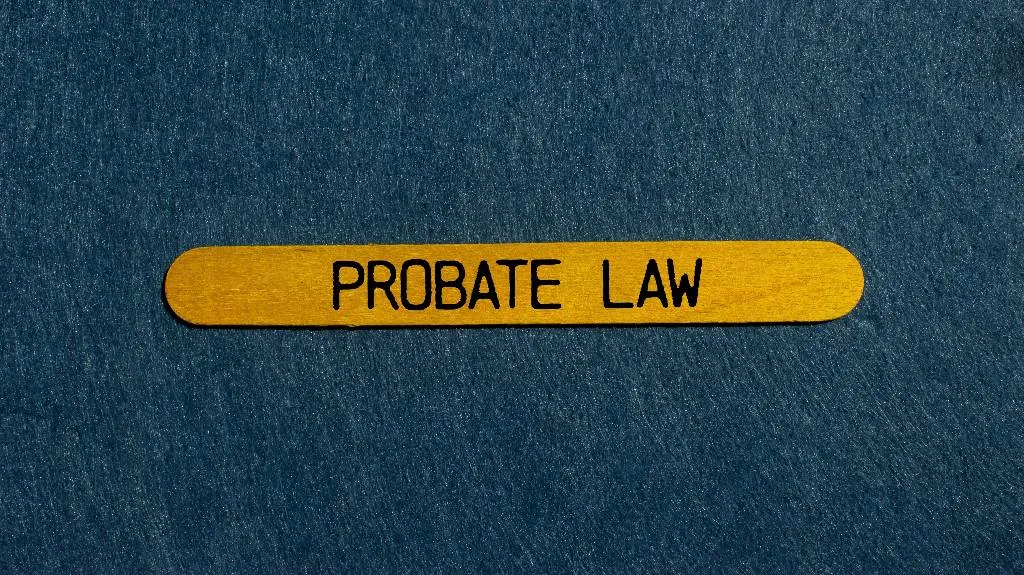The world of trusts is complicated and usually calls for specific roles to guarantee their seamless and efficient running. One such function is that of a trust protector, a rather recent addition to California trust law but a necessary one especially in sophisticated estate planning in Rocklin, Roseville, and Granite Bay. This article examines what a trust protector is, how it is used, the advantages it provides to the trust and its beneficiaries, and the safeguards utilized when utilizing a trust protector.
What is a Trust Protector?
A trust protector is an individual or institution designated inside a trust document to supervise the activities of the trustee and protect the beneficiary’s interests. A trust protector is a watchdog unlike trustees, who handle and distribute the trust’s assets. Their main responsibilities include making sure the trustee operates the trust in line with the wishes of the settlor—the person who established the trust—and that the trust keeps serving its intended use over time.
Get a Free Consultation Today
In long-term or irrevocable trusts, where unanticipated events could develop following the death or incapacity of the settlor, trust protectors are extremely essential. They give flexibility by enabling changes to the trust without involving drawn-out and expensive court processes.
How is a Trust Protector Employed?
The trust document itself expressly lists a trust protector’s appointment and powers. The settler has considerable input on the authority the trust protector will be granted. Typically, the following steps outline how a trust protector is employed:
- Appointment: The settlor designates a trust protector in the trust document. This could be an individual such as a family friend, attorney, or even a financial advisor, or it might be a corporate entity that specializes in trust administration. The designation can also be left to a court of competent jurisdiction for the court to decide later when a trust protector is needed.
- Defining the Protector’s Powers: The scope of the trust protector’s authority is determined by the settlor. Common powers include the ability to:
- Remove or replace trustees.
- Amend the trust in certain circumstances.
- Approve or disapprove significant transactions (e.g., selling real estate).
- Resolve disputes between trustees and beneficiaries.
- Correct administrative issues that arise over time.
- Acting as a Watchdog: The trust protector does not involve themselves in the day-to-day administration of the trust but steps in when needed to exercise the powers granted to them. For instance, if the trustee is underperforming or acting against the interests of the beneficiaries, the trust protector can step in to rectify the situation.
- Communication: Trust protectors typically maintain open communication with both the trustee and the beneficiaries, ensuring that everyone’s interests are aligned and that the trust is functioning as intended.
Benefits of Having a Trust Protector
Having a trust protector in place provides numerous advantages, particularly for more complex trusts that are designed to last several years or even generations. Here’s how trust protectors benefit both the trust and its beneficiaries:
- Flexibility
Changes in laws, family dynamics, or unanticipated financial requirements can cause trusts—especially irrevocable ones, to become outdated over time. A trust protector’s authority to modify certain terms ensures that the trust can adapt to these changes without needing to go to court. For example, if tax laws shift, the trust protector could adjust provisions to ensure the trust remains tax-efficient.
- Oversight and Accountability
One of the most critical functions of a trust protector is providing oversight over the trustee’s actions. Trusts are long-term vehicles, and a trustee might change or even fail in their fiduciary duties over time. A trust protector can step in to remove a trustee who is underperforming or not acting in the beneficiaries’ best interest, ensuring that the trust is administered effectively.
- Protection for Beneficiaries
Beneficiaries often rely on the trustee to act in their best interests, but conflicts can arise. If beneficiaries feel the trustee is not acting appropriately, the trust protector can act as an intermediary, addressing grievances and making adjustments as needed. This adds a layer of protection for beneficiaries, especially in situations where they lack the resources or knowledge to challenge the trustee themselves.
- Dispute Resolution
Family trusts often bring about disputes, especially among beneficiaries who may have differing views on how the trust should be managed. A trust protector can serve as a neutral party to mediate disputes, making decisions that are in line with the settlor’s intentions and the best interests of the trust. This can prevent costly litigation, which might drain family funds and sour ties.
- Consistency with the Settlor’s Intentions
Over time, circumstances and family dynamics may change, but the original intentions of the settlor remain. A trust protector ensures that the trustee adheres to the settlor’s wishes and that the trust continues to fulfill its original purpose, even if the trustee or family situation changes.
Protections in Place When Using a Trust Protector
While trust protectors offer many benefits, it’s essential to understand the safeguards that are typically put in place to ensure they, too, act in the best interest of the trust and its beneficiaries.
- Fiduciary Duty
In many jurisdictions, trust protectors are considered fiduciaries, meaning they have a legal obligation to act in the best interests of the beneficiaries. This fiduciary responsibility requires them to act with loyalty, prudence, and in accordance with the terms of the trust. This legal obligation ensures that the trust protector cannot make arbitrary decisions and must always prioritize the well-being of the beneficiaries.
- Defined Authority
The trust document itself is a crucial protective measure. It limits the powers of the trust protector, specifying exactly what they can and cannot do. For example, while a trust protector might have the power to replace a trustee, they may not have the authority to change beneficiary distributions unless explicitly granted this power. This clear delineation of authority ensures that the trust protector cannot overreach their role.
- Beneficiary Recourse
If beneficiaries believe that a trust protector is acting improperly or beyond the scope of their powers, they can typically challenge the protector’s actions in court. This provides a vital check on the protector’s authority and offers a means of recourse if they fail to uphold their fiduciary duties.
- Periodic Review
Many trusts include provisions for periodic reviews of the trust protector’s actions by an independent party or the beneficiaries themselves. This ongoing oversight ensures that the protector continues to act in line with the trust’s purposes and the settlor’s wishes.
- Accountability through Documentation
Trust protectors are usually required to document their decisions and actions. These records ensure transparency and can be reviewed by the trustee, beneficiaries, or the courts if necessary. This documentation acts as a safeguard, preventing trust protectors from making arbitrary or unwise decisions.
Conclusion
Incorporating a trust protector into a trust can provide significant benefits, particularly for irrevocable or long-term trusts. They offer flexibility, ensure the settlor’s intentions are followed, and provide an extra layer of protection for beneficiaries. With clearly defined powers and legal protections in place, trust protectors can help ensure the trust’s success and longevity, providing peace of mind for both the settlor and the beneficiaries.
However, it is essential that the trust document is carefully drafted to outline the trust protector’s role and authority clearly. By doing so, both the trust and its beneficiaries can enjoy the many benefits of having a trust protector while safeguarding against potential abuses of power.
At Filippi Law Firm, P.C., we specialize in estate planning and trust administration, including the strategic use of trust protectors, in Rocklin, Roseville, and Granite Bay. If you are considering adding a trust protector to your estate plan or need assistance with an existing trust, we are here to help guide you through the process. Reach out to us today to learn more about how we can help protect your legacy and your loved ones.




